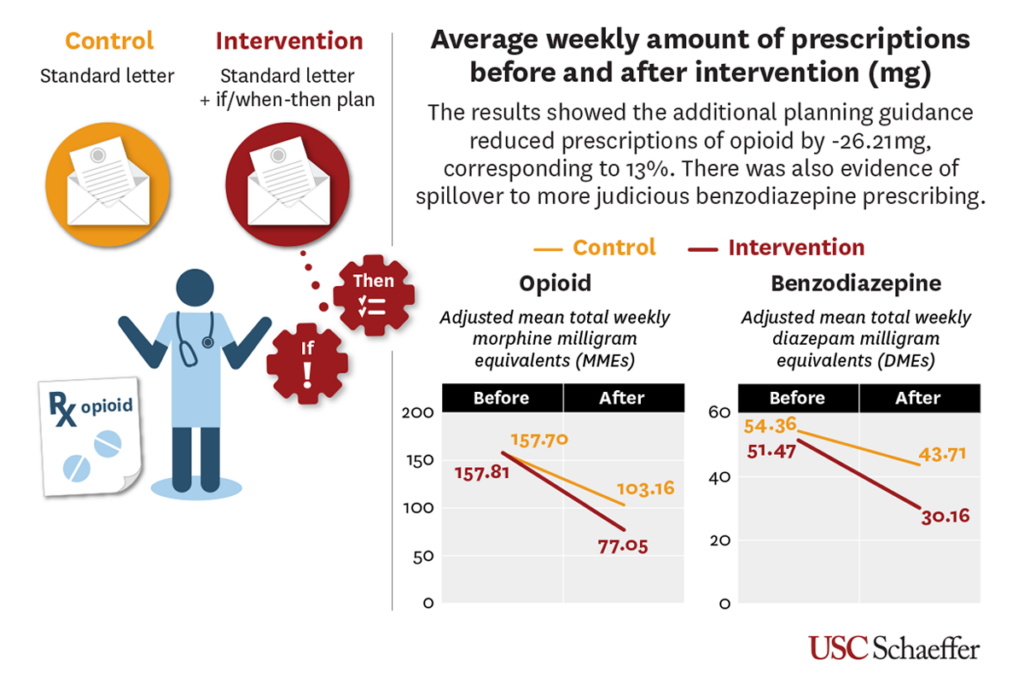Research Program
Behavioral Sciences
Schaeffer’s Behavioral Science and Policy Initiative aims to understand how people think, talk and make decisions about key policy topics, including healthcare, food and climate change. Our insights help create effective messaging and interventions that better fit people’s needs.
Program Leadership
-

Wändi Bruine de Bruin, MSc, PhD
Director, Behavioral Sciences and Policy Initiative
Senior Scholar, USC Schaeffer Institute
USC Schaeffer Institute
Featured Research and Perspectives

Americans More Likely to Choose Vegan Food if Labeled ‘Healthy’ and ‘Sustainable’
A new USC study suggests that changing labels of vegan food to focus on health and environmental benefits may encourage people to eat less red meat and dairy.

A Randomized Trial Looking at Planning Prompts to Reduce Opioid Prescribing
The study confirmed the benefit of planning prompts, and repeat letter exposure among clinicians with poor patient outcomes.

Why Higher Copayments for Opioids Did Not Reduce Use Among Medicare Beneficiaries
Greater prescribing of opioids by physicians is widely understood to be the primary driver of the opioid epidemic. Ironically, the introduction of Medicare Part D contributed to the epidemic.

Clinician Job Satisfaction After Peer Comparison Feedback
A Secondary Analysis of a Randomized Clinical Trial
Want Safer Prescribing? Provide Doctors with a Plan for Helping Patients in Pain
Letters notifying physicians of patient overdose deaths and providing a plan for the future is an effective intervention, according to new USC Schaeffer Center research
Read Full Story